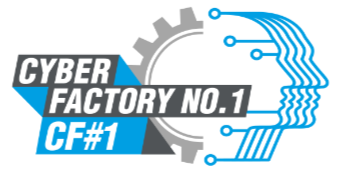The Project DNA of CyberFactory#1
Achieving efficient and resilient Factories of the Future (FoF)
This is the aim of CyberFactory#1 in its three-year project duration. The project is the outcome of a user-driven investigation on security implications concerning the digital transformation of aerospace manufacturing lines. This investigation was carried out in 2017-2018 in scope of an eponym multifunctional working group within Airbus, including manufacturing and security professionals from Airbus Commercial Aircraft and Airbus Defence and Space divisions. The project idea was drafted by mid-2017 and a proposal was brought to the ITEA cluster for extension to broader industrial sectors facing similar digital transition challenges such as the rail systems, automotive, machine manufacturing or textile industry.
A consortium of a total of 31 partners from France, Canada, Finland, Germany, Portugal, Spain and Turkey was established, involving a balanced set of industrial pilots, technology providers and research organizations. It came to the definition of a large set of use-cases and misuse cases targeted to the convergence of industrial process optimization and manufacturing system resilience challenges. The consortium managed by Airbus Cybersecurity came to the definition of a set of twelve key capabilities that are necessary in order to achieve efficient and resilient FoF. These capabilities belong to three capacities: 1) FoF modeling and simulation, 2) FoF monitoring, control and optimization, 3) FoF security and resilience. For each of these three capacities, a set of four capabilities address respectively technical, economical, human and societal dimensions of digital transition.
This equal consideration for technological and non-technological aspects of digital transition makes our project original and most applicable in the operational environment compared to the many techno-centric projects which currently bloom in the area of the Industry 4.0 topic. The equal consideration to both optimization and resilience challenges as well ensures adequate cost/benefit rationale in the selection of organizational and technological set-ups for industrial transformation.
The project was kicked-off on 18th December 2018 with support from the Spanish funding Authority. Finland, Canada, Germany, Portugal and Turkey later confirmed their support, while the UK and France remain with self-funded participations at this stage. Close to one year from project start, CyberFactory#1 has already successfully delivered a set of ten detailed pilot use-cases and as many misuse-cases, covering topics such as remote asset monitoring, statistical process control, robot fleet optimization, real time inventory or predictive maintenance and threats such as rogue device insertion, industrial data spoofing, distributed denial of service or adversarial machine learning. Upcoming is the definition of generic secure and optimized architectures for Factories of the Future.
Author: Adrien Bécue, Project Coordinator, Head of Innovation and R&T, Airbus CyberSecurity


 https://pixabay.com/photos/business-computer-mobile-smartphone-2846221/
https://pixabay.com/photos/business-computer-mobile-smartphone-2846221/